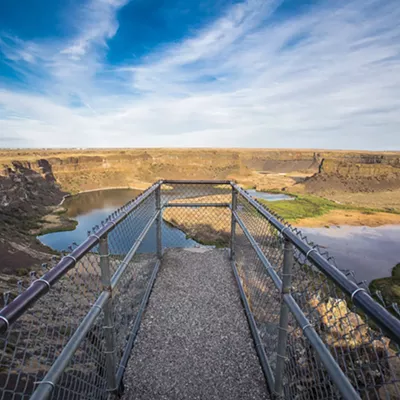The agreement includes more than $500 million in federal investments that will, among other things, help restore salmon runs in the basin (particularly in the Snake River) and build one to three gigawatts of new clean energy capacity that's approved by area tribes. When combined with other fish restoration commitments from the Biden administration, more than $1 billion will be coming to the Pacific Northwest.
The deal was reached with “six sovereigns” including Washington, Oregon, the Nez Perce Tribe, and the confederated tribes and bands of the Yakama Nation, Warm Springs, and the Umatilla Reservation.
With the agreement in place, environmental groups and the tribes agreed to a 10-year pause on federal litigation aimed at forcing action to restore the endangered fish runs throughout the Columbia-Snake River corridor.
The plan outlines a process to replace the energy, transportation, irrigation and recreation that are provided by the four lower Snake River dams, with an eye on making it feasible for Congress to consider breaching them in the next decade or so.
The agreement was celebrated last week, with leaders from each party gathered at the White House.
“We need a lot more clean energy, but we need to develop it in a way that it’s socially just,” said Yakama Nation chairman Gerald Lewis during the White House event. “The last time energy was developed in the Columbia Basin, it was done on the backs of tribal communities and tribal resources. Now we have an opportunity to do better and have the tribes at the table.”
You can watch the ceremony here:
























